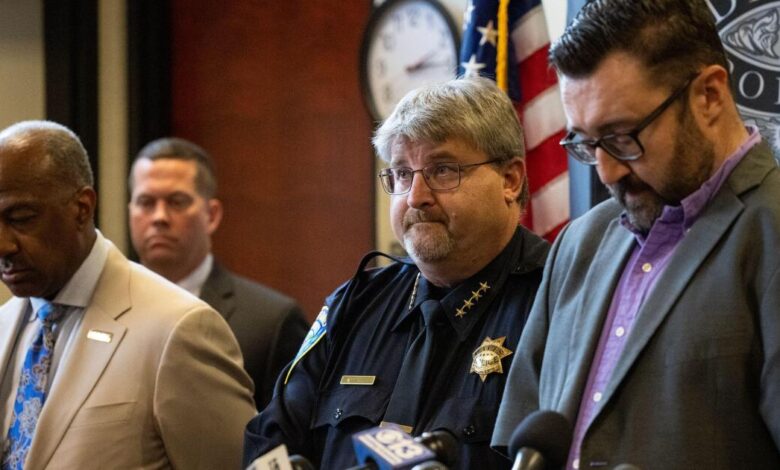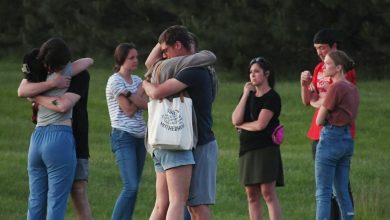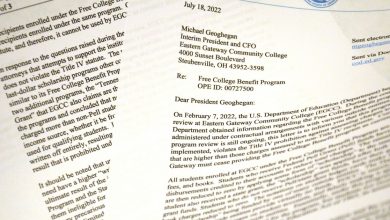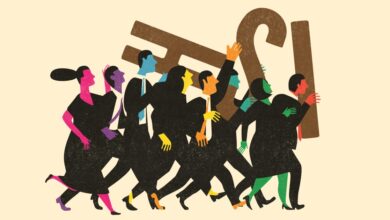A Former Student Is Suspected in the UC-Davis Stabbings. Here’s What We Know.

[ad_1]
After a harrowing week in which three people were stabbed near the campus of the University of California at Davis, a former student was arrested Thursday in connection with the crimes.
Two of the victims died, including a UC-Davis student who was about to graduate and a community member known on campus as the “Compassion Guy.” The third victim was critically injured.
The spate of violence sowed fear across the quiet college town of Davis for a week as the police tried to track down suspects. There previously had not been a murder in Davis since 2019.
Here’s what else we know about the stabbings and how the university has responded.
The university cut ties with the suspect two days before the first stabbing.
The suspect, 21-year-old Carlos Reales Dominguez, was “separated” from the university for “academic reasons” on April 25, according to a university statement. The nature of this separation is unclear. A spokesperson for the university said she couldn’t provide more details beyond what was in public statements because of student-privacy laws.
Dominguez was arrested Thursday and charged Friday on two counts of murder and one count of attempted murder.
“There is relief in knowing the alleged perpetrator of these senseless and violent acts is now in custody,” the chancellor of UC-Davis, Gary S. May, said in a campuswide message Thursday. “We can all breathe a little easier and begin to process the pain, fear, and sorrow we collectively experienced in the past week.”
The first victim, David Henry Breaux, was stabbed on April 27 in Davis’s Central Park. According to The Aggie, the university’s student newspaper, Breaux, 50, was known in the Davis community for asking people what compassion meant to them.
Two days later, Karim Abou Najm, a fourth-year computer-science student who was about to graduate, was stabbed in Davis’s Sycamore Park. Najm, 20, was from Davis and helped create a startup network for undergraduate researchers during his time at the university.
A third victim, Kimberlee Guillory, 64, was stabbed on May 1 while staying in a tent. She survived but was critically injured. The campus was locked down into Tuesday morning while police searched for a suspect, to no avail.
UC-Davis took steps to protect the campus, but students said the administration didn’t do enough.
After the second stabbing, Chancellor May announced that the university’s police department would increase its patrols on and off campus and expand its “Safe Ride” service. May urged community members not to travel alone.
On Tuesday, after the third stabbing, May announced a shift to remote instruction for classes after 6 p.m. The campus police department requested assistance from other departments in the UC system and tapped private security for additional support at night.
Some students were critical of the university for not canceling classes altogether or moving to fully online learning. Student leaders sent a letter to UC-Davis’s Academic Senate on Tuesday asking that it require all classes to go online or provide a virtual option until a suspect was apprehended.
“UC Davis students are justifiably fearful for their safety,” the letter reads. “As long as the perpetrator of these attacks remains at large, students are unable to safely travel to and from class. Both students and faculty deserve at minimum the option to stay home and attend classes remotely. We should not have to choose between our safety and academic success.”
With a suspect in custody, in-person evening classes will resume on Monday. The university has extended its pass-fail deadline.
The stabbings followed other campus tragedies this academic year.
The fall and spring terms have been pockmarked by a series of violent incidents on and near campuses, including shootings at Michigan State University and the Universities of Arizona and Virginia, and the killings of four University of Idaho students off campus. That’s not to mention the 18 shootings that have taken place in elementary and secondary schools in 2023.
At the University of Arizona, Thomas Meixner, chair of the hydrology and atmospheric sciences department, was shot and killed in October while walking to his office. A former graduate student was charged in Meixner’s murder. The suspect had been angry about a grade and was expelled several months before the shooting after repeatedly sending violent and threatening messages to faculty members.
The killing ignited tensions between faculty members and the administration; officials eventually admitted that they had missed multiple opportunities to intervene before the threats escalated to violence.
At the University of Idaho, it took police more than six weeks to arrest a suspect. During that time, many students fled campus and attended class online.
[ad_2]
Source link






